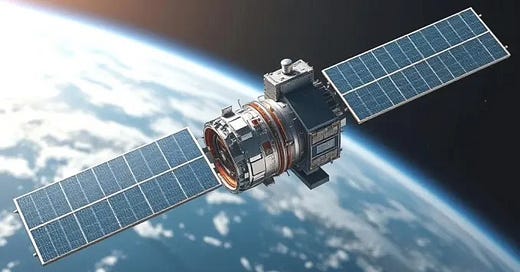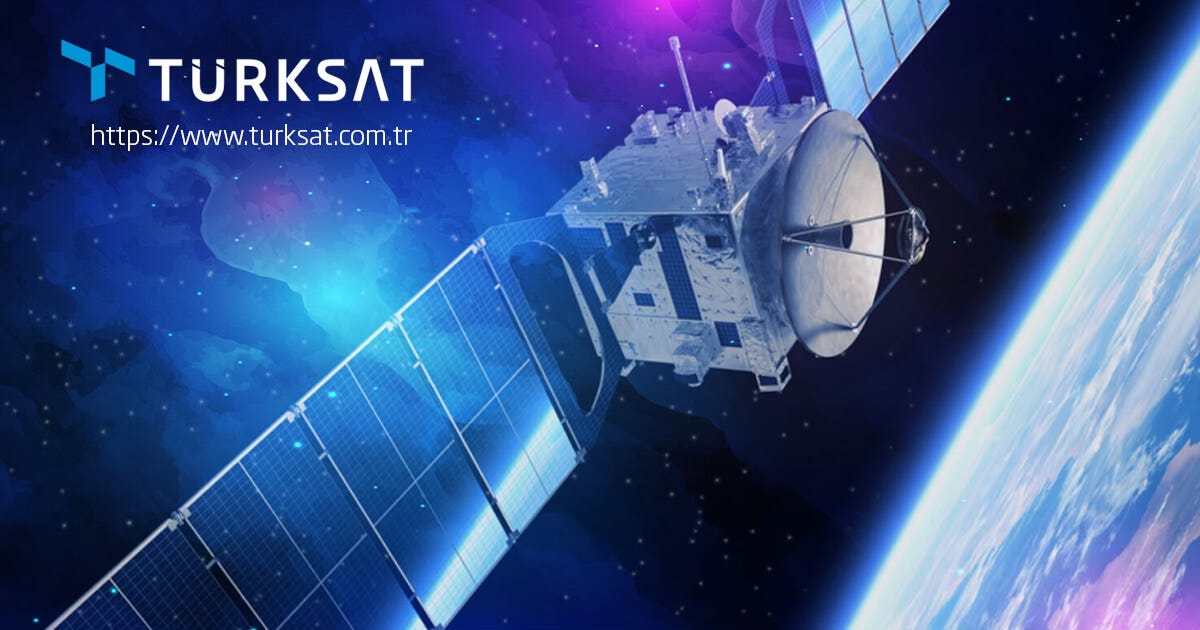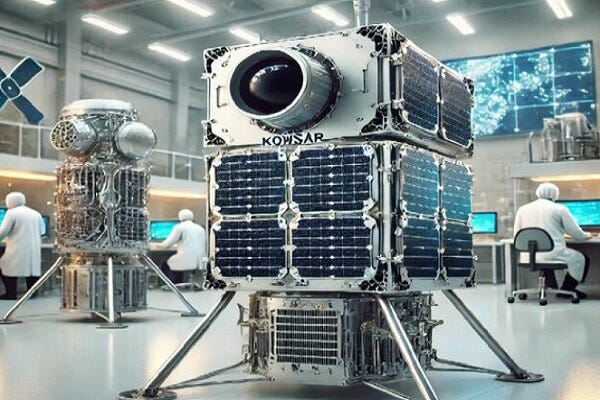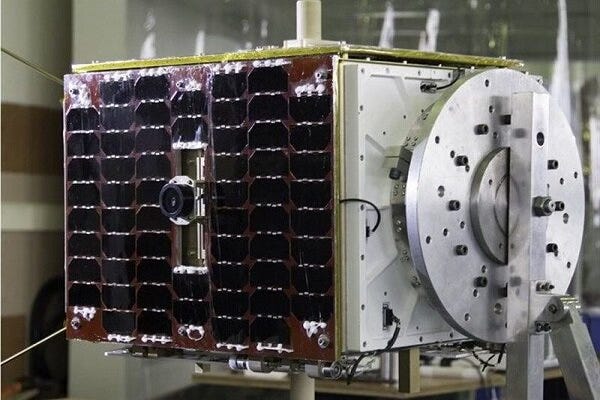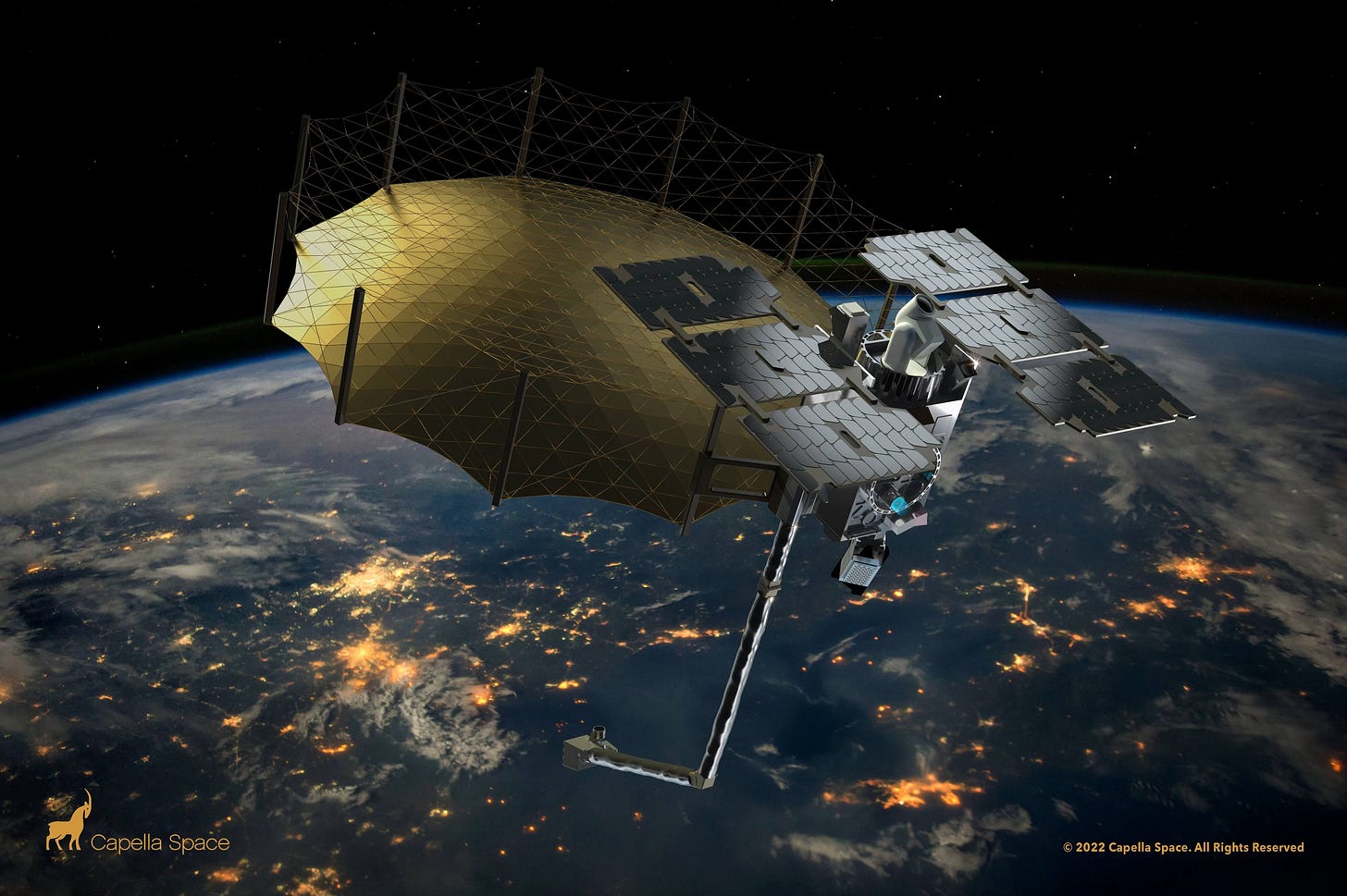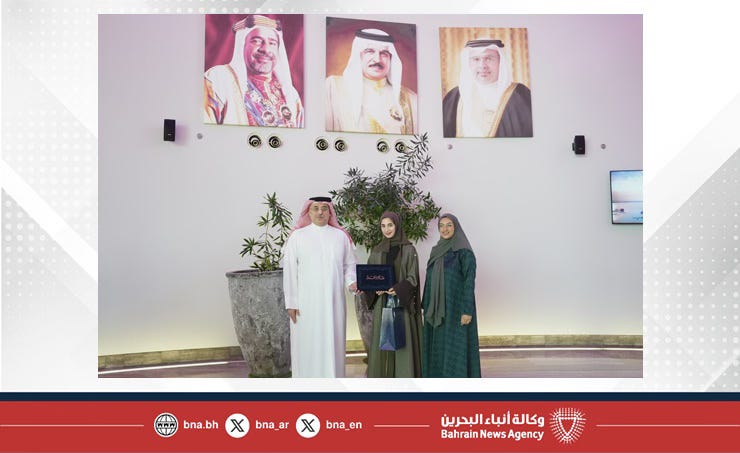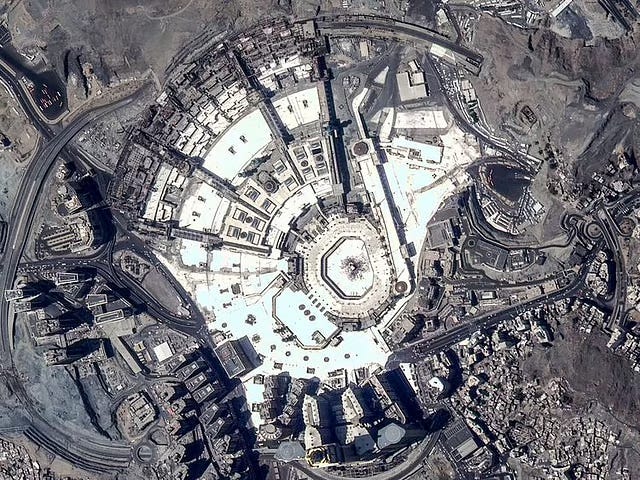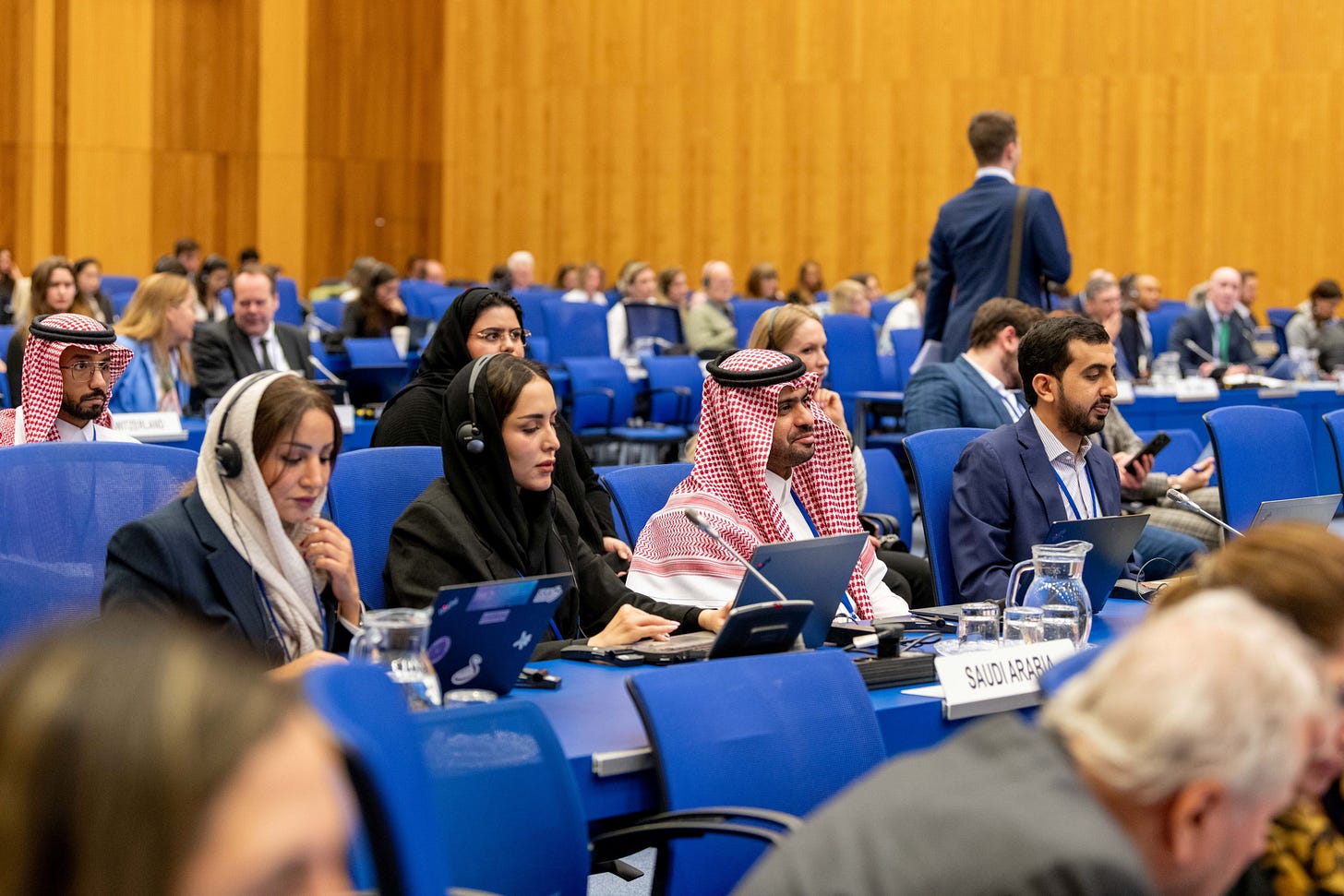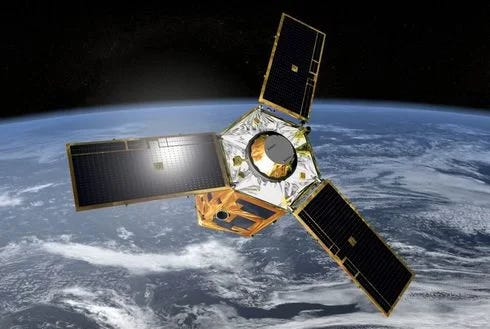Middle East Space Roundup: 2 to 8 June 2025
A summary of all the space news in the Greater Middle East over the past week, brought to you by AzurX
The following are the major space developments in the Greater Middle East region tracked by Middle East Space Monitor over the past week:
Türkiye Space Developments
Türkiye to Accelerate Development of TURKSAT-7A, Hold Forum on Future Space Plans
Türkiye is accelerating its satellite and space ambitions through strategic initiatives led by TÜRKSAT, which is advancing projects such as the upcoming TURKSAT-7A and next-generation GEO, MEO, and LEO satellites. These efforts are aimed not only at enhancing communications but also bolstering national capabilities in security, data collection, and environmental monitoring. A forthcoming forum will convene public and private stakeholders to address sustainable communication, satellite–terrestrial integration, domestic production, and regulatory needs—reinforcing Türkiye’s drive for technological sovereignty and positioning it as a competitive force in the global space sector.
Türkiye’s TURKSAT-6A Potentially Reaching 5 Billion People - Minister
Türkiye’s Minister of Transport and Infrastructure, Abdulkadir Uraloğlu, highlighted the strategic significance of the TURKSAT-6A satellite—launched in 2024 after a decade-long development process—as a major milestone in the country’s growing space capabilities, with coverage potential reaching 5 billion people. He also emphasized Türkiye’s parallel push into 5G technology, with national rollout targeted for 2026, reinforcing the country’s broader ambitions to strengthen its digital infrastructure and assert itself as a regional leader in advanced communications and space technologies.
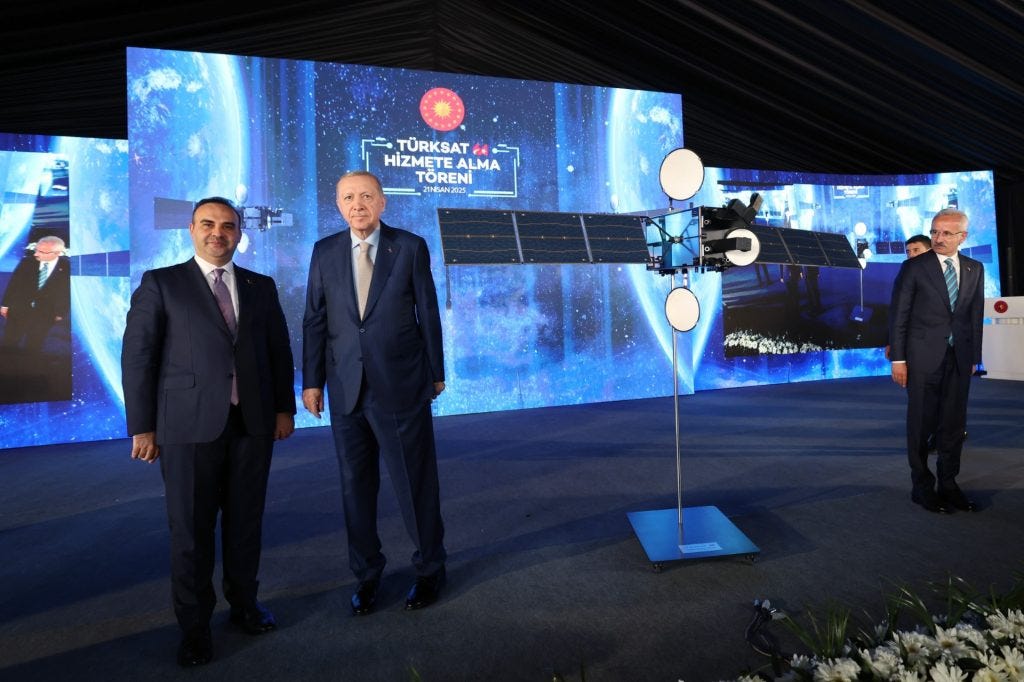
Türkiye Signs Launch Agreement SpaceX According to Turkish Minister
Türkiye has unveiled significant advancements in its space ambitions, with Minister of Industry and Technology Mehmet Fatih Kacır confirming a launch agreement with SpaceX and plans for sovereign space access, including indigenous rockets and a national spaceport. Highlighting the completion of TURKSAT-6A, Türkiye’s first domestically developed communications satellite—with over 80% local content—Kacır positioned the country among the world’s top 11 satellite-capable countries. These developments are part of a broader strategy to build a national space industry ecosystem, backed by targeted R&D incentives and a robust industrial base aimed at transforming Türkiye into a global high-tech manufacturing and innovation hub.
Türkiye’s Türksat to Host New Age of Connectivity Forum on 19 June 2025
Türkiye’s satellite and space sector will converge at the Türksat-led “New Age of Connectivity Forum” in Ankara on 19 June 2025, bringing together key institutions, companies, and policymakers to shape the nation’s GEO, LEO, and MEO satellite strategies. With a focus on multi-layered connectivity, digital sovereignty, and sustainable communications, the forum will highlight domestic innovation, regulatory priorities, and cross-sector collaboration—cementing Türksat’s central role in advancing Türkiye’s space and satellite ambitions.
Türkiye’s Türksat Offers AI-Enabled Earth Observation Data for Agricultural Sector
Türkiye is transforming agricultural oversight with Türksat’s AI-powered satellite analysis system, which integrates data from Göktürk-1, Göktürk-2, Sentinel-2, and PlanetScope to monitor over 45 million decares of farmland with over 98% accuracy. The system identifies crop types, flags irregularities in planting declarations, tracks plant health indicators, and forecasts yields—offering a powerful tool for real-time decision-making, efficient water use, and food security. This marks a significant advance in integrating space-based AI into national agricultural policy and sustainability efforts.
Türkiye’s Second Astronaut Calls for Sustained Microgravity Research
Turkish astronaut Tuva Cihangir Atasever, the country’s second astronaut, emphasized Türkiye’s strategic push to build a sustainable, world-class space ecosystem through its National Space Program. Following his suborbital mission aboard Virgin Galactic’s VSS Unity, Atasever highlighted the scientific value of 20 combined space experiments and ongoing public outreach across Türkiye to inspire future talent. With results under analysis, he stressed the need for sustained microgravity research programs and deeper academia-industry collaboration to anchor long-term space capabilities and fulfill the country’s ambition of exceeding global standards in space science and technology.
Iran Space News
Iran and Russia Deepen Space Cooperation in Face of Western Sanctions
Iran and Russia are deepening strategic space cooperation, with Iranian Ambassador Kazem Jalali and Roscosmos CEO Dmitry Bakanov discussing joint satellite production, infrastructure development, and technology transfer during a recent meeting in Moscow. This growing partnership, underscored by Russia’s launch of Iranian satellites such as Kowsar and Hodhod, reflects both countries’ intent to resist Western sanctions and geopolitical isolation. By advancing collaborative initiatives in satellite manufacturing, training, and remote sensing capabilities, Tehran and Moscow are leveraging their space programs to reinforce bilateral ties and project resilience in the face of mounting Western pressure.
Iran Looks to Establish Itself as BRICS+ Space Education Hub
Despite persistent challenges to its space program, Iran is leveraging its strong academic institutions—such as Amirkabir University of Technology, Iran University of Science & Technology, and Sharif University of Technology—to position itself as a hub for space education within the BRICS+ framework, according to Intelligence Online. Backed by the Iranian Space Agency and the Iranian Space Research Center, the country is offering specialized training courses to attract students from emerging economies, aligning its scientific diplomacy efforts with United Nations principles of international cooperation in space.
Iran Accelerating Development of 2nd, 3rd Generation Kosar & HudHud Satellites
Iran is accelerating its satellite development cycle with new second- and third-generation models of the Kosar and Hodhod satellites, aiming for production timelines of under six months. The upgraded Kosar satellite integrates remote sensing and IoT functions, with enhanced communications, control systems, and algorithmic capabilities, and is intended for sun-synchronous orbit at 500 km. This marks a significant leap from the four-year timeline of its original version and reflects Iran’s strategic push to advance its space capabilities and autonomy.
Technical Details Emerge of Iran’s Nahid-2 Telecommunications Satellite
Iran’s Nahid-2 satellite, now awaiting launch, represents a significant leap in the country's telecommunication and space systems engineering. Designed as a multipurpose LEO microsatellite, Nahid-2 integrates advanced capabilities including chemical propulsion for orbital maneuvers, GPS-independent positioning, and secure Ku-band telephone relays. With 20 distinct subsystems—ranging from radiation dosimetry and three-axis attitude control to novel store-and-forward protocols for 254 ground users—the satellite reflects Tehran’s ambitions to master satellite platform technologies as precursors to eventual GEO-class systems. Its pending deployment, alongside Pars-2 and the emerging Pazhoohesh series, underscores Iran’s strategic push to expand domestic capabilities in space under sanctions, positioning itself as a self-reliant actor in dual-use space infrastructure.
Iran Endorses UN Cybercrime Convention that Targets Starlink Satellite Internet
A bloc of authoritarian governments—including Iran, Cuba, and Russia—has endorsed a new UN cybercrime convention aimed at reasserting state control over digital spaces and curbing "foreign interference," implicitly targeting satellite internet services like Starlink. While framed as a cybersecurity initiative, the agreement prioritizes sovereign governance over online content and criticizes technologies that enable uncensored access, such as Starlink's role in bypassing information controls in Iran and Cuba. The move signals a coordinated push to counter the geopolitical influence of private satellite networks, raising concerns about expanding digital censorship under the guise of multilateral cooperation.
UAE Space Developments
Yousef Al Otaiba: UAE-U.S. Geotechnological Alliance Reshapes Secure Technology Transfers
In Fox News, the UAE’s ambassador to the United States, Yousef Al Otaiba, writes that President Trump’s recent visit to the UAE marked the formalization of a deepened U.S.-UAE strategic technology alliance, anchored by the new AI Acceleration Partnership and the establishment of a massive 10-square mile AI campus in Abu Dhabi. This partnership—framed by strict regulatory and cybersecurity safeguards—sets a global precedent for secure technology transfer and mutual trust in the handling of advanced U.S. systems. For the space and satellite sector, this trust-based model has direct implications: it opens the door for greater bilateral collaboration on sensitive satellite payloads, dual-use space technologies, and AI-enabled space-based surveillance. With U.S. firms expanding operations in the UAE and Emirati capital flowing into American digital and defense infrastructure, the partnership signals a maturing geotechnological alliance that could reshape how sovereign capabilities are co-developed across space, AI, and critical infrastructure.
UAE in Talks With Capella Space for ‘Sovereign’ SAR Earth Observation Satellites
Amid shifting geopolitical dynamics and tightening U.S. budgets, American Earth observation satellite firms like Maxar, BlackSky, Capella Space, and Planet Labs are rapidly expanding into foreign markets—positioning themselves as providers of “sovereign” space capabilities. The UAE has emerged as a key prospective customer, with Capella Space confirming active negotiations to supply synthetic aperture radar (SAR) satellites for independent national use. This marks a strategic inflection point for the Emirates as it seeks to enhance autonomous geospatial intelligence, reflecting broader regional ambitions to reduce reliance on traditional intelligence-sharing arrangements and to harness satellite data for defense, infrastructure, and economic planning.
UAE’s Ajman Chamber Visits China’s Guoxing Aerospace to Discuss Space Computing
A UAE economic and trade delegation, led by Ajman Chamber board member Marwan Hussain Shah Ali, visited Guoxing Aerospace in China on 27 May 2025 to explore cooperation in AI-enabled space technologies. Discussions with Guoxing EVP Dr. Hongjie Zhao focused on the company’s Star Calculator program and its potential to support the UAE’s space ambitions, particularly in space computing. Guoxing Aerospace emphasized its commitment to international collaboration under the Belt and Road framework, aiming to contribute to a globally interconnected space computing ecosystem and expand China’s commercial space technology footprint.
Opinion: UAE Positioned to Lead Space Medicine Field With National AI Investments
In Gulf News, Canadian physician Dr. Farhan M. Asrar writes that the UAE continues to assert itself as a leader among emerging space countries, advancing a multidimensional space strategy that blends exploration with national innovation goals. As human spaceflight accelerates globally—highlighted by upcoming missions like Axiom-4 and expanding astronaut participation—the UAE's milestones, including its Mars Hope mission, two national astronauts in orbit, and its signing of the Artemis Accords, reinforce its strategic positioning. Central to these ambitions is space medicine, now recognized as a mission-critical domain. In alignment with the UAE National AI Strategy 2031 and Centennial 2071 vision, future deep space missions will require autonomous healthcare solutions—particularly as AI-enabled telemedicine becomes vital for addressing long-duration physiological and psychological challenges in space. The UAE’s investment in this nexus of space, health, and AI not only supports human spaceflight viability but also underscores its broader commitment to sovereign capability in next-generation space infrastructure.
Azerbaijan Space News
Azerbaijan in Talks With Hungary’s 4iG for Space & Satellite Investments, Collaboration
Azerbaijan’s Minister of Economy Mikayil Jabbarov met with Gellért Jászai, Chairman of Hungary’s 4iG Space and Defence Technologies, to explore deepening bilateral cooperation, with a particular focus on energy, technology, and space. The meeting highlighted 4iG’s interest in investing in Azerbaijan’s expanding tech ecosystem, including satellite and space industry capabilities. As 4iG strengthens its regional presence, the talks signal growing momentum for joint ventures, technology transfer, and space-sector collaboration between Hungary and Azerbaijan.
Azerbaijan’s Azercosmos Receives ICESCO Grant for Space Medicine
Azerbaijan’s Azercosmos has won an international grant from the Islamic World Educational, Scientific and Cultural Organization (ICESCO) for its pioneering work at the intersection of space science and medicine, presenting a groundbreaking course on healthcare practices in zero-gravity environments. Recognized by both ICESCO and Arabian Gulf University, the initiative reflects Azerbaijan’s growing leadership in space medicine—a field still largely constrained to gravitational conditions—and underscores the broader integration of satellite technologies and microgravity research into regional space sector development.
Starlink Officially Registered to Operate Satellite Services in Azerbaijan
Starlink has officially entered the Azerbaijan market with the registration of Starlink Azerbaijan LLC on 4 June 2025, signaling a major move to expand high-speed satellite internet access across the country. The registration, approved by the Information and Communication Technologies Agency, positions Azerbaijan to benefit from Starlink’s global low-latency satellite connectivity, enhancing digital infrastructure and bridging coverage gaps, particularly in remote and underserved regions.
Israel Space Developments
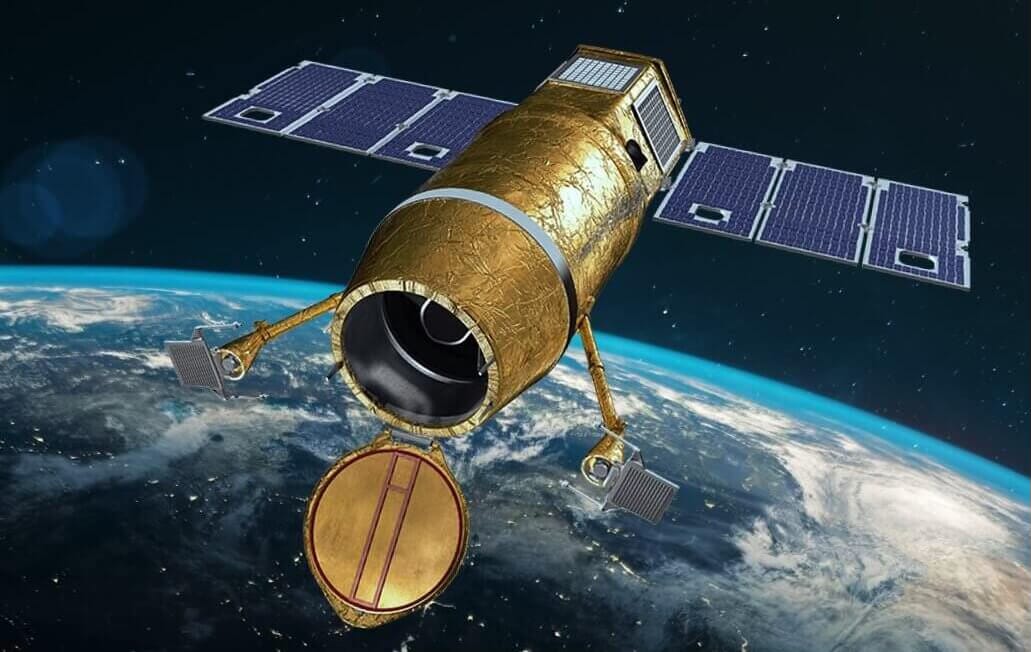
Satellites Account for Eight Percent of Israel’s $14.7 Billion Defense Exports in 2024
Israel’s defense exports reached a record $14.7 billion in 2024, with satellites and space systems accounting for 8% of this total—a reflection of Israel’s growing edge in high-tech aerospace capabilities. Alongside air and missile defense systems, which dominated at 48%, the country’s satellite technologies are gaining traction globally, reinforcing Israel’s strategic value in dual-use space assets. Notably, the Ministry of Defense credited the performance of Israeli systems in recent conflicts as a key driver of global demand. Israel’s ability to develop and export sophisticated, battle-tested space systems positions it as a significant player in the international defense and satellite markets.
Israel’s Weizmann Institute Invents Method for Detecting Life on Jupiter’s Europa
Scientists at Israel's Weizmann Institute have proposed a novel approach to detecting signs of life on Europa, one of Jupiter’s moons, by remotely identifying three specific amino acids—phenylalanine, tryptophan, and tyrosine—that could survive for decades in Europa’s resurfaced ice. While NASA's Europa Clipper and ESA's JUICE missions will provide vital mapping data, neither is equipped to detect biosignatures directly. The new study suggests that a cost-effective mission using laser-based fluorescence detection could reveal these organic molecules from orbit. The initiative highlights increasing international interest—particularly from Israel—in developing independent, lower-cost planetary science missions that complement major agency efforts.
Israel’s Gilat Secures $40 Million for Its SkyEdge IV SATCOM Platform
Israel’s Gilat Satellite Networks has secured a $40 million contract for its cloud-native, fully virtualized SkyEdge IV platform—an advanced satellite ground network solution built to support emerging 5G Non-Terrestrial Network (NTN) standards. The award underscores Gilat’s strategic pivot toward digital ground segment transformation, leveraging open standards like DIFI to enable multi-orbit, multi-service operations via standard cloud infrastructure. This move positions Gilat at the forefront of the SATCOM industry’s shift to software-defined, scalable architectures capable of supporting next-generation satellite services and unlocking new commercial use cases.
Bahrain Space News
Bahrain Space Agency’s Maryam Saleh Wins First Place for Aquamap Geospatial Concept
The Bahrain Space Agency honored student Maryam Saleh for winning first place in the public sector category at The Grads Expo 2025 with her project "AquaMap," an innovative platform that uses high-resolution satellite imagery and spatial data to identify optimal fishing zones. Supported by the agency and supervised by Professor Roaya Bubshait, the project highlights how satellite technologies can be applied to national environmental and fisheries management priorities. CEO Dr. Mohammed Al Asiri praised the initiative as a model of academic collaboration aligned with Bahrain’s Vision 2030 and the country’s growing emphasis on space-enabled sustainability solutions.
Bahrain Space Agency Launches New Website to Reflect Its New Status
The Bahrain Space Agency (BSA) has launched a new website to enhance its digital presence and engage space sector stakeholders both locally and internationally. The platform offers comprehensive access to BSA’s strategic vision, national space policy, and ongoing projects, while also featuring interactive content to educate and inspire youth. This initiative reflects Bahrain’s growing commitment to space science and aligns with its broader Vision 2030 development goals.
Saudi Arabia Space Developments
Saudi Arabia Utilizes Satellite Imagery to Monitor Annual Hajj Season
During the Hajj season, the Royal Commission for Makkah City and Holy Sites, in partnership with King Abdulaziz City for Science and Technology (KACST), is deploying high-resolution satellite imagery, geospatial AI, and real-time analytics to optimize crowd and traffic management. By monitoring vehicle flow at entry points, tracking crowd density near the Grand Mosque, and predicting movement patterns, the system enables rapid, data-driven decision-making to enhance safety, coordination, and operational efficiency. This initiative exemplifies the strategic application of space-based and AI technologies in managing large-scale religious events.
Saudi Arabia Participates in the 64th Session of COPUOS Legal Subcommittee
Saudi Arabia, through its Communications, Space and Technology Commission (CST) and the Saudi Space Agency (SSA), actively participated in the 64th session of the UN COPUOS Legal Subcommittee in Vienna, reinforcing its growing role in global space governance. The Kingdom engaged in key legal discussions concerning the peaceful use of outer space, commercial space activities, and space debris mitigation—critical issues as Saudi Arabia expands its presence in international space forums and aligns with the evolving legal architecture governing outer space activities.
Other Regional Space News
Experts Urge Morocco to Invest in Dedicated Space R&D Framework and Satellite Ecosystems
Morocco is positioning itself as an emerging player in the global space sector, building on its aerospace manufacturing base and the successful launch of its Mohammed VI-A and VI-B satellites, which have catalyzed national capabilities in remote sensing, environmental monitoring, and security. While over 140 aviation firms and robust training infrastructure support the country's industrial ecosystem, experts highlight the need for a dedicated space R&D framework, stronger international cooperation, and specialized innovation hubs to fully capitalize on satellite technologies. Morocco’s geographic and economic positioning further enhances its potential as a strategic gateway for space-enabled services across Africa.
Lebanon Gives Approval to Starlink to Start Satellite Internet Services
Starlink has received initial approval to begin operations in Lebanon, marking a significant step toward enhancing the country’s internet infrastructure amid its ongoing economic crisis and upcoming IMF rescue deal. With backing from the Ministry of Economy and Trade and security clearance already granted, Starlink’s satellite-based services are poised to support Lebanon’s struggling private sector and communications rehabilitation efforts. The move aligns with broader regional adoption of Starlink across the Gulf, including approvals in Saudi Arabia, Oman, and Qatar, as the company expands its satellite internet footprint in politically and economically sensitive markets.
Be sure to catch up with space activities in the region in the next edition of Middle East Space Monitor’s space roundup!

